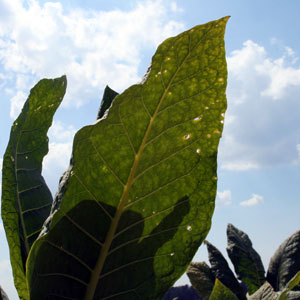EU acting on child labor

The EU Commission says it encourages the International Labour Organization (ILO) to promote decent work and eradicate child- and forced-labor in the tobacco sector, without resorting to financing from the tobacco industry.
The ILO has attracted criticism after a meeting of its governing body closed on Thursday without having reached a consensus on whether to continue its partnership with the tobacco sector in the fight against child labor.
But the Commission’s statement, delivered in writing on the day that the ILO meeting closed, was in answer to a question raised in December by the Maltese member of the European Parliament, Marlene Mizzi.
In a preamble to her question, Mizzi said that thousands of child workers spent summers working on tobacco farms, often to earn money needed for books, school supplies, and backpacks, or to help their parents pay the bills.
‘Many experience symptoms of acute nicotine poisoning, including nausea, vomiting, headaches, and dizziness,’ she said. ‘Public health studies have shown that tobacco farmworkers have nicotine levels in their bodies equal to smokers in the general population.
‘Moreover, it is dangerous for children to work 12 hours a day in the sun and high heat while absorbing nicotine and pesticides. Working in tobacco can be perilous for adults, but it is especially harmful to children whose bodies and brains are still developing.’
Mizzi asked: ‘Can the Commission clarify what measures it plans to take with regard to the tobacco industry, in order to protect the health of children by preventing hazardous child labor on tobacco farms?’.
In answer, the Commission said the EU was committed to fighting child labor through a ‘multidimensional and integrated approach’. ‘This is particularly important in the case of agriculture, one of the sectors with the highest incidence of the worst forms of child labor,’ it said.
‘The EU contributes to preventing child labor in the tobacco sector through actions promoting alternative livelihoods and decent jobs as well as improved access to education and training.
‘EU development policy interventions in agriculture are generally focused on supporting product diversification among smallholder farmers by promoting alternative sources of income to tobacco. Thus, our agro-business programs are underpinned by a thorough analysis of the relevant value chains and the role played by child labor.’
The Commission said that, as had been said in response to a previous question, its approach to fighting child- and forced-labor in agriculture, including that within tobacco supply chains, was based on an integrated multi-country approach to leverage companies into observing due diligence and rising consumers’ awareness.
‘The EU also encourages the International Labour Organization to promote decent work and eradicate child- and forced-labor in the tobacco sector without resorting to financing from the tobacco industry,’ it said.
